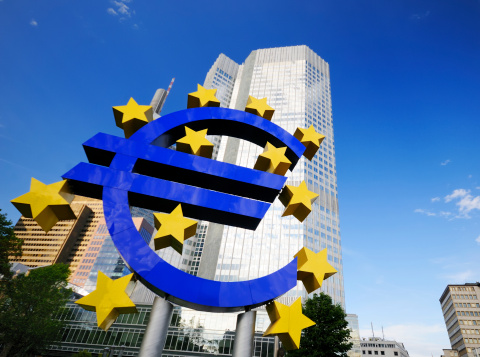This post may contain links from our sponsors and affiliates, and Flywheel Publishing may receive
compensation for actions taken through them.
Leaders in Europe and economists and policymakers outside the region got another slug of data that tends to support the argument that austerity has caused nearly irreversible damage in the eurozone. That damage worsens at a more rapid rate most months, and the recession in Europe may well turn into a depression, particularly in the nations most weakened financially.
New data from Markit shows:
Final Eurozone Manufacturing PMI at three month low of 46.8.
Output and new orders fall at stronger rates, driving further job losses.
PMIs fall in almost all countries, with modest decline in Germany accompanied by steep downturns in France, Spain and Italy.
Three of the four largest economies in the region as measured by gross domestic product have moved beyond a bad tipping point, and the largest — Germany — is close. Markit’s Chief Economist Chris Williamson expressed despair about the near-term future:
“The Eurozone manufacturing sector looks likely to have acted as a drag on the economy in the first quarter, with an acceleration in the rate of decline in March raising the risk that the downturn may also intensify in the second quarter.”
So as not to cause a panic, Williamson decided against saying what he probably believes: the year is lost economically. And there are no policies in place to make 2014 much better.
The data by nation showed that not a single one avoided contraction. Germany’s PMI was the worst in three months in March, down to 49.0 from 50.3 in February. France inched higher from 43.9 to 44.0, However, “The average reading for the PMI over the first quarter of 2013 (43.6) was the lowest since Q2 2009 (43.1).” That is to say, the middle of the last recession.
In Italy:
March saw the seasonally adjusted Markit/ADACI Purchasing Managers’ Index fall to a seven-month low of 44.5, from February’s mark of 45.8. The latest reading was below the average recorded over the current 20-month sequence of contraction, and indicative of a marked deterioration in overall business conditions.
And in Spain:
The seasonally adjusted Markit Purchasing Managers’ Index — a composite indicator designed to measure the performance of the manufacturing economy — dropped to 44.2 in March, from 46.8 in the previous month. This was the lowest reading since October 2012, and represented the twenty-third successive deterioration of business conditions in the sector.
The argument that Spain and Italy will be able to borrow money at sustainable rates is undermined by these numbers, even if the European Central Bank offers to buy up their paper if they knuckle under to austerity programs.
At the risk of being repetitious: those programs are now the core of the problem.
Cash Back Credit Cards Have Never Been This Good
Credit card companies are at war, handing out free rewards and benefits to win the best customers. A good cash back card can be worth thousands of dollars a year in free money, not to mention other perks like travel, insurance, and access to fancy lounges. See our top picks for the best credit cards today. You won’t want to miss some of these offers.
Flywheel Publishing has partnered with CardRatings for our coverage of credit card products. Flywheel Publishing and CardRatings may receive a commission from card issuers.
Thank you for reading! Have some feedback for us?
Contact the 24/7 Wall St. editorial team.





